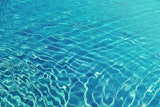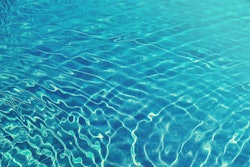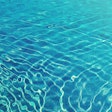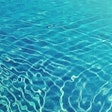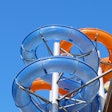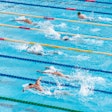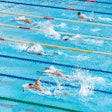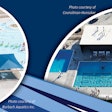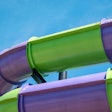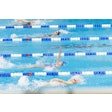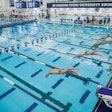Behind the success of every great aquatic faciltiy is a great pump room staff.
Sure, it sounds clichéd, but every day is an adventure at Lee Hovis' workplace. And it's not simply because the Jacksonville Beach, Fla., amusement park he manages is called Adventure Landing. Its main attraction is an expansive water park boasting a 500,000-gallon wave pool, three major thrill slides, a 720-foot-long lazy river and a 6,000-square-foot children's leisure pool with an interactive three-story water-play tower.
This complex aquatic facility is supported by five independent filter systems that run around the clock. And while Hovis knows that at any given moment his facility is just one minor mistake away from mechanical failure, he can't count how many times he's relied on his aquatic technicians to come to the rescue. "They do it every day," says Hovis, a past chairman of the World Waterpark Association's board of directors. "They'll find out if something's not working because the power got shut off or an air gap got in the hose line."
Hovis' pump room staff can also protect the aquatic facility from chemical crises, even when automated systems can't. "We are completely automated and, obviously, automation is only as good as the machine is," he says. "Things happen. It's a matter of checking and noticing things before they happen."
Hovis recounts a recent Friday when one of his technicians noticed that, due to a chemical company's delinquent delivery, the facility was down to its last barrel of acid with a busy weekend looming. A quick phone call had three barrels onsite by Saturday morning. Says Hovis, "You get used to deliveries automatically happening every few days. But if you're not checking, things can slip."
On a daily basis, aquatic facility operators must ensure that their facilities are simultaneously safe, secure, clean and entertaining. But while the most visible individuals at a pool - think lifeguards - often receive the bulk of the positive feedback, an aquatic facility simply couldn't function without the pool technicians behind the scenes. These men and women are heroes, too, even though their skills in keeping pool water safe are often taken for granted. Their good works tend to be greeted with silence, but poor water quality is met with a crescendo of complaint.
"I've heard this rule of thumb said many different ways, but the gist of it is that when someone's dissatisfied, they tell, say, 17 people, but if they're satisfied, they're only going to tell six people," says Tom Lachocki, chief executive officer of the National Swimming Pool Foundation. "So when people go to an aquatic facility, if the customer service is great, the facilities are beautiful, if it's affordable and a magical experience for their family, but they leave and the kids have earaches the next day, it doesn't matter how well the facility does in all the other areas. Those negatives are only going to diminish the experience."
One might believe it is the quick-thinking and responsive aquatic facility manager who, in cases of emergency, tries to remedy mechanical or chemical problems alone, doing whatever he or she can to bring inoperable pool systems back online. But an even shrewder operations strategy is to hire qualified professionals to do such jobs in the facility manager's stead.
"The curious thing is that aquatics specialists and pool technicians are different human beings," says Kent Williams, president and founder of the Professional Pool Operators of America. "To think that a lifeguard can be a pool water chemist - or that an aquatics manager can run the pump room - is a bit of a challenge because they're coming from two different educational backgrounds. They have a whole different approach to aquatics. And yet we try so hard to make the aquatics guy and the maintenance guy the same guy. Only one out of 20 can really do a good job at both."
That's not to say that only a highly educated person can be a pool technician, although it certainly helps if one has at least a fundamental understanding of and appreciation for science. "Operating the pool involves a lot of scientific disciplines," says Lachocki. "It involves chemistry, but there's also engineering, public health, math, microbiology. You don't need to hire a Ph.D. chemist, or even a bachelor's degree chemist, to run most facilities. But having a person who has at least some basic education in the field is always going to help you. They also have to receive an education in the field, so they get exposure to the chemistry, the microbiology, the engineering, the public health and the management aspects of those facilities. Fortunately, there are classes available that help people do that."
Aquatic professionals have available to them two international certification opportunities - the Aquatic Facility Operator (AFO) program and the Certified Pool-spa Operatorr (CPO) course. In 1992, at the behest of the National Recreation and Park Association, Williams wrote and published the first AFO manual. That same year, the two-day AFO course was certified by the National Certification Board of the NRPA. Although the CPO program predates the AFO certification by 20 years, it wasn't until 2005 that the NSPF released the first significant update since 1983. (The NSPF revised the CPO textbook again this year, simultaneously releasing a Spanish version.) Courses for both certifications are available year-round in practically every corner of the country, while CPO courses are also held in Canada, the Caribbean, China, Taiwan and the Czech Republic.
But certification isn't enough. "A lot of education comes from hands-on training," says Hovis. "Instead of simply saying, `Okay, now that you're certified, you know everything. Go for it,' we'll walk around with technicians and ask them questions. I may know off-hand how much chemical we need to add, but I start posing questions to them - `Which chemical are we going to use and why are we doing this?' I start getting them to think of the rationale. Taking the course is great, but using that knowledge in the real world and understanding why you're using it is more important."
And the more people on an aquatic facility staff who have a grasp of the intricacies of chlorination tables and DPD testing kits, the better. Hovis isn't satisfied with only one or two of his staff members being qualified to run the pump room; he currently has eight CPOs on staff, including several managers.
Lachocki understands the desire to have multiple understudies on staff. "The challenge for aquatic facilities is the paradigm of how people work in our country," he says. "Usually the most qualified people don't work weekends. And when are aquatic facilities used the most? On weekends and holidays. So it's really important that those facilities look at how they staff during their peak times."
If a facility's most qualified operations people aren't available to work on the weekends, able substitutes must be. Smaller facilities that don't have the payroll capacity to hire more than one or two technicians should ensure that a service company is available to provide around-the-clock weekend assistance. "To run a quality business and aquatic facility, you want to be at your best when all your customers are there," says Lachocki. "Facilities don't have to be extraordinary at everything they do, but they can't be deficient either."
Similarly, the knowledge base of aquatic facility technicians should never be allowed to fall behind the times. But to remain proficient and up-to-date on best practices and standards, technicians must be provided with regular learning opportunities at industry events such as trade shows and conferences. "Every opportunity that I can get my people somewhere, I will," says Hovis. "For instance, the World Waterpark Association conference this year is going to be in Orlando, so I will take a whole bunch of people there."
And while seminars are certainly helpful, don't discount the intrinsic value of informal conversation with peers. "People share so much at some of these events," says Hovis. "The networking opportunities and the things you can learn just from talking to somebody can actually help far more than listening to somebody give a lecture." Opportunities to compare offerings from a number of manufacturers can also prove beneficial. "The manufacturers are going to present their products, and they're certainly going to position them as effective solutions," says Lachocki. "But you can't just rely on the manufacturer. Just like when you go to the doctor, it's worthwhile getting a second opinion. It's always worthwhile to have conversations with other manufacturers because they can provide a fairer assessment of how other technologies work or don't work."
Taking that notion one step further, Lachocki believes there is even greater value in increasing opportunities for aquatic professionals to speak directly with research scientists whose findings can provide practitioners with a valuable counterpoint to manufacturers' claims. To that end, the NSPF has created the World Aquatic Health Conference, the third of which will take place this September in Austin, Texas. Then next spring, NSPF will launch the International Journal of Aquatic Research and Education, in partnership with publishing house Human Kinetics.
"Understanding the science behind the technology is very important, and when people are evaluating the information that they get from the manufacturer, they should ask for real data," says Lachocki, acknowledging that the aquatics industry - with the exception of competitive swimming - isn't known for making available research-intensive publications. "Our field has neglected research for a long time. Science undocumented is science undone. Last year, we funded about $500,000 in research and this year we budgeted for $650,000. As we're funding more research, we're looking for ways to disseminate that information. One way - and probably the quickest - is to have the scientists who are doing that work speak at our conference. It's also important that the work scientists present at a conference is documented in publications that are going to be peer-reviewed."
That's the idea behind the new NSPF journal, Lachocki adds. "The journal's mission is really to be the hub of this tire of our industry," he says. "So if there are chemistry, microbiology, physiology or public health articles, they all come into this hub and people can access this information, either at the conference or in the journal."
The journal - which will be available both online and in print - is to be edited by Stephen Langendorfer, a Bowling Green State University associate professor of kinesiology whose research focuses on evaluating the qualitative effects of motor skills such as prone swimming. Langendorfer expects IJARE to have a research bent yet remain accessible to the everyday pool technician. In fact, he predicts the journal will best resemble publications like Psychology Today.
"Usually, there's either a research journal or a professional-oriented one for practitioners. We're going to try to be both," says Langendorfer. "The nature of the whole aquatics industry - whether you're coming from a manager's point of view or that of a lifeguard - is that it's a very pragmatic field. There aren't a whole bunch of us running around who are real researchers, and even those of us who consider ourselves researchers always have our feet on the practical side. That's where I think this journal is going to be really exciting, because side by side with the education-oriented articles that practitioners in particular will want to look at will be basic research articles that focus on water quality and safety issues. But there will also be a series of theory-into-practice articles that will stimulate people's thinking."
While organizations like the NSPF pledge to advance the professionalism of the aquatics industry through research and education, Hovis intends to continue stimulating the minds of his aspiring pool technicians any way he can - even requiring his newly certified techs to carry their CPO manual around the workplace for their first few weeks on the job. After all, he knows the success of his facility depends on their preparedness.
"We do all kinds of in-service training, drills and testing for our lifeguards because of the life-safety issues," says Hovis. "But sometimes we forget about doing the same type of training for our maintenance staff. They deserve the same type of reminders that our lifeguards receive. Having them trained is a big plus for us."













